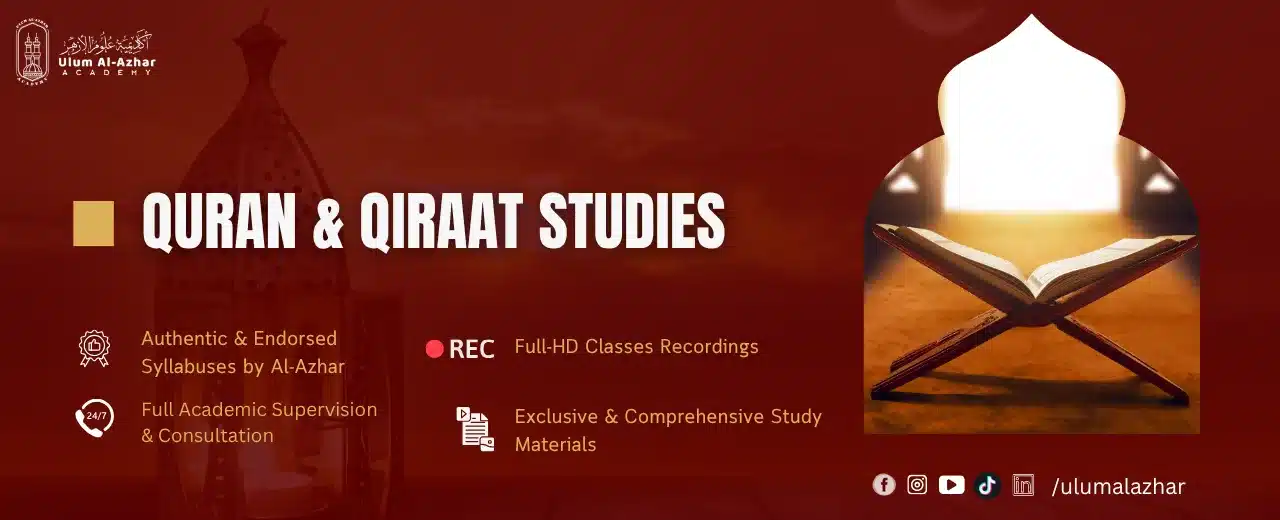
Surah Ar Rahman Transliteration and Its Powerful Reminders
Let me tell you a short story, Qays ibn ‘Asim al-Minqari said to the Prophet ﷺ: “Recite to me what has been revealed to you.” So he recited Surah Ar-Rahman to him. Qays said: “Recite it again,” so he repeated it three times.Then he said: “Indeed, it has a sweetness to it”. What makes a specific chapter of the Qur’an so exceptionally impactful? Surah Ar-Rahman, without a doubt one of the most beloved and frequently recited chapters, occupies a truly special place in the spiritual landscape of every Muslim.
Its distinction comes from its mesmerizing poetic rhythm, its rich tapestry of divine themes, and most notably, its hauntingly powerful repeated question — “Which of the favors of your Lord will you deny?” — all working in harmony to call us to a state of profound recognition of Allah’s blessings, accompanied by deep gratitude and genuine humility.
Within this article, we’ll explore the critical role and importance of Surah Ar Rahman transliteration, unpack its core themes, and illuminate its enduring spiritual effect on the individual. Whether for aspiring scholars at Ulum Al-Azhar Academy or devout Muslims worldwide, Surah Ar-Rahman continues to inspire and deeply move souls.

Surah Ar Rahman Transliteration and Arabic Text Together
Surah Ar-Rahman is the 55th chapter in the order of the Quran. It is a Makki surah, with 78 verses and it is considered one of the earliest revelations. Also, it is the only surah in the Qur’an that begins with one of the Names of Allah.
It is said that the reason for its revelation is related to the statement of the polytheists mentioned in the verse: “And when it is said to them, ‘Prostrate to the Most Merciful,’ they say, ‘And who is the Most Merciful?’” (Al-Furqan: 60). Thus, its naming as “Surah Ar-Rahman” is to affirm the attribute of Ar-Rahman (The Most Merciful).
It is also said that the reason for its revelation is related to the statement of the polytheists mentioned in the Qur’an:”It is only a human being who teaches him.” (An-Nahl: 103). Allah responded to them by affirming that Ar-Rahman is the One who taught the Prophet ﷺ the Qur’an.
Dive into Islamic learning; begin with a free consultation, guided by Al-Azhar-certified Sheikhs based in Egypt.
Below you find full Surah Ar Rahman transliteration alongside the Arabic text:
ٱلرَّحۡمَٰنُ (1) عَلَّمَ ٱلۡقُرۡءَانَ (2) خَلَقَ ٱلۡإِنسَٰنَ (3) عَلَّمَهُ ٱلۡبَيَانَ (4) ٱلشَّمۡسُ وَٱلۡقَمَرُ بِحُسۡبَانٖ (5) وَٱلنَّجۡمُ وَٱلشَّجَرُ يَسۡجُدَانِ (6) وَٱلسَّمَآءَ رَفَعَهَا وَوَضَعَ ٱلۡمِيزَانَ (7) أَلَّا تَطۡغَوۡاْ فِي ٱلۡمِيزَانِ (8) وَأَقِيمُواْ ٱلۡوَزۡنَ بِٱلۡقِسۡطِ وَلَا تُخۡسِرُواْ ٱلۡمِيزَانَ (9) وَٱلۡأَرۡضَ وَضَعَهَا لِلۡأَنَامِ (10) فِيهَا فَٰكِهَةٞ وَٱلنَّخۡلُ ذَاتُ ٱلۡأَكۡمَامِ (11) وَٱلۡحَبُّ ذُو ٱلۡعَصۡفِ وَٱلرَّيۡحَانُ (12) فَبِأَيِّ ءَالَآءِ رَبِّكُمَا تُكَذِّبَانِ (13)
Ar-Raḥmān (1) ‘Allamal-Qur’ān (2) Khalaqal-insān (3) ‘Allamahul-bayān (4) Ash-shamsu wal-qamaru biḥusbān (5) Wan-najmu wash-shajaru yasjudān (6) Was-samā’a rafa‘ahā wa waḍa‘al-mīzān (7) Allā taṭghaw fil-mīzān (8) Wa aqīmul-wazna bil-qisṭi wa lā tukhṣirul-mīzān (9) Wal-arḍa waḍa‘ahā lil-anām (10) Fīhā fākihatun wan-nakhlu dhātu-l-akmām (11) Wal-ḥabbu dhul-‘asfi war-rayḥān (12) Fa-bi ayyi ālā’i rabbikumā tukadhdhibān (13)
خَلَقَ ٱلۡإِنسَٰنَ مِن صَلۡصَٰلٖ كَٱلۡفَخَّارِ (14) وَخَلَقَ ٱلۡجَآنَّ مِن مَّارِجٖ مِّن نَّارٖ (15) فَبِأَيِّ ءَالَآءِ رَبِّكُمَا تُكَذِّبَانِ (16) رَبُّ ٱلۡمَشۡرِقَيۡنِ وَرَبُّ ٱلۡمَغۡرِبَيۡنِ (17) فَبِأَيِّ ءَالَآءِ رَبِّكُمَا تُكَذِّبَانِ (18) مَرَجَ ٱلۡبَحۡرَيۡنِ يَلۡتَقِيَانِ (19) بَيۡنَهُمَا بَرۡزَخٞ لَّا يَبۡغِيَانِ (20) فَبِأَيِّ ءَالَآءِ رَبِّكُمَا تُكَذِّبَانِ (21) يَخۡرُجُ مِنۡهُمَا ٱللُّؤۡلُؤُ وَٱلۡمَرۡجَانُ (22) فَبِأَيِّ ءَالَآءِ رَبِّكُمَا تُكَذِّبَانِ (23) وَلَهُ ٱلۡجَوَارِ ٱلۡمُنشَـَٔاتُ فِي ٱلۡبَحۡرِ كَٱلۡأَعۡلَٰمِ (24) فَبِأَيِّ ءَالَآءِ رَبِّكُمَا تُكَذِّبَانِ (25)
Khalaqal-insāna min ṣalṣālin kal-fakhkhār (14) Wa khalaqal-jāanna min mārijin min nār (15) Fa-bi ayyi ālā’i rabbikumā tukadhdhibān (16) Rabbul-mashriqayni wa rabbul-maghribayn (17) Fa-bi ayyi ālā’i rabbikumā tukadhdhibān (18) Marajal-baḥrayni yaltaqiyān (19) Baynahumā barzakhun lā yabghiyān (20) Fa-bi ayyi ālā’i rabbikumā tukadhdhibān (21) Yakhruju minhumāl-lu’lu’u wal-marjān (22) Fa-bi ayyi ālā’i rabbikumā tukadhdhibān (23) Wa lahu-l-jawāri-l-munsha’ātu fil-baḥri kal-a‘lām (24) Fa-bi ayyi ālā’i rabbikumā tukadhdhibān (25)
كُلُّ مَنۡ عَلَيۡهَا فَانٖ (26) وَيَبۡقَىٰ وَجۡهُ رَبِّكَ ذُو ٱلۡجَلَٰلِ وَٱلۡإِكۡرَامِ (27) فَبِأَيِّ ءَالَآءِ رَبِّكُمَا تُكَذِّبَانِ (28) يَسۡـَٔلُهُۥ مَن فِي ٱلسَّمَٰوَٰتِ وَٱلۡأَرۡضِۚ كُلَّ يَوۡمٍ هُوَ فِي شَأۡنٖ (29) فَبِأَيِّ ءَالَآءِ رَبِّكُمَا تُكَذِّبَانِ (30) سَنَفۡرُغُ لَكُمۡ أَيُّهَ ٱلثَّقَلَانِ (31) فَبِأَيِّ ءَالَآءِ رَبِّكُمَا تُكَذِّبَانِ (32) يَٰمَعۡشَرَ ٱلۡجِنِّ وَٱلۡإِنسِ إِنِ ٱسۡتَطَعۡتُمۡ أَن تَنفُذُواْ مِنۡ أَقۡطَارِ ٱلسَّمَٰوَٰتِ وَٱلۡأَرۡضِ فَٱنفُذُواْۚ لَا تَنفُذُونَ إِلَّا بِسُلۡطَٰنٖ (33) فَبِأَيِّ ءَالَآءِ رَبِّكُمَا تُكَذِّبَانِ (34) يُرۡسَلُ عَلَيۡكُمَا شُوَاظٞ مِّن نَّارٖ وَنُحَاسٞ فَلَا تَنتَصِرَانِ (35) فَبِأَيِّ ءَالَآءِ رَبِّكُمَا تُكَذِّبَانِ (36)
Kullu man ‘alayhā fān (26) Wa yabqā wajhu rabbika dhul-jalāli wal-ikrām (27) Fa-bi ayyi ālā’i rabbikumā tukadhdhibān (28) Yas’aluhoo man fissamāwāti wal-arḍ Kulla yawmin huwa fī sha’n (29) Fa-bi ayyi ālā’i rabbikumā tukadhdhibān (30) Sanafrughu lakum ayyuhas-thaqalān (31) Fa-bi ayyi ālā’i rabbikumā tukadhdhibān (32) Yā ma‘sharal-jinni wal-insi inis-taṭa‘tum an tanfuḍū min aqṭāris-samāwāti wal-arḍi fanfuḍū Lā tanfuḍūna illā bisulṭān (33) Fa-bi ayyi ālā’i rabbikumā tukadhdhibān (34) Yursalu ‘alaykumā shuwāẓun min nārin wa nūḥāsun fa-lā tantaṣirān (35) Fa-bi ayyi ālā’i rabbikumā tukadhdhibān (36)
فَإِذَا ٱنشَقَّتِ ٱلسَّمَآءُ فَكَانَتۡ وَرۡدَةٗ كَٱلدِّهَانِ (37) فَبِأَيِّ ءَالَآءِ رَبِّكُمَا تُكَذِّبَانِ (38) فَيَوۡمَئِذٖ لَّا يُسۡـَٔلُ عَن ذَنۢبِهِۦٓ إِنسٞ وَلَا جَآنّٞ (39) فَبِأَيِّ ءَالَآءِ رَبِّكُمَا تُكَذِّبَانِ (40) يُعۡرَفُ ٱلۡمُجۡرِمُونَ بِسِيمَٰهُمۡ فَيُؤۡخَذُ بِٱلنَّوَٰصِي وَٱلۡأَقۡدَامِ (41) فَبِأَيِّ ءَالَآءِ رَبِّكُمَا تُكَذِّبَانِ (42) هَٰذِهِۦ جَهَنَّمُ ٱلَّتِي يُكَذِّبُ بِهَا ٱلۡمُجۡرِمُونَ (43) يَطُوفُونَ بَيۡنَهَا وَبَيۡنَ حَمِيمٍ ءَانٖ (44) فَبِأَيِّ ءَالَآءِ رَبِّكُمَا تُكَذِّبَانِ (45)
Fa-idhan-shaqqatis-samā’u fa kānat wardatan kaddiḥān (37) Fa-bi ayyi ālā’i rabbikumā tukadhdhibān (38) Fa-yawma’idhin lā yus’alu ‘an dhambihi insun walā jān (39) Fa-bi ayyi ālā’i rabbikumā tukadhdhibān (40) Yu‘rafu-l-mujrimūna bisīmāhum fa yu’khaḏu bin-nawāṣi wal-aqdām (41) Fa-bi ayyi ālā’i rabbikumā tukadhdhibān (42) Hādhihi jahannamullatī yukadhdhibu bihā-l-mujrimūn (43) Yaṭūfūna baynahā wa bayna ḥamīmil-ān (44) Fa-bi ayyi ālā’i rabbikumā tukadhdhibān (45)

وَلِمَنۡ خَافَ مَقَامَ رَبِّهِۦ جَنَّتَانِ (46) فَبِأَيِّ ءَالَآءِ رَبِّكُمَا تُكَذِّبَانِ (47) ذَوَاتَآ أَفۡنَانٖ (48) فَبِأَيِّ ءَالَآءِ رَبِّكُمَا تُكَذِّبَانِ (49) فِيهِمَا عَيۡنَانِ تَجۡرِيَانِ (50) فَبِأَيِّ ءَالَآءِ رَبِّكُمَا تُكَذِّبَانِ (51) فِيهِمَا مِن كُلِّ فَٰكِهَةٖ زَوۡجَانِ (52) فَبِأَيِّ ءَالَآءِ رَبِّكُمَا تُكَذِّبَانِ (53) مُتَّكِـِٔينَ عَلَىٰ فُرُشِۭ بَطَآئِنُهَا مِنۡ إِسۡتَبۡرَقٖۚ وَجَنَى ٱلۡجَنَّتَيۡنِ دَانٖ (54) فَبِأَيِّ ءَالَآءِ رَبِّكُمَا تُكَذِّبَانِ (55) فِيهِنَّ قَٰصِرَٰتُ ٱلطَّرۡفِ لَمۡ يَطۡمِثۡهُنَّ إِنسٞ قَبۡلَهُمۡ وَلَا جَآنّٞ (56) فَبِأَيِّ ءَالَآءِ رَبِّكُمَا تُكَذِّبَانِ (57) كَأَنَّهُنَّ ٱلۡيَاقُوتُ وَٱلۡمَرۡجَانُ (58) فَبِأَيِّ ءَالَآءِ رَبِّكُمَا تُكَذِّبَانِ (59) هَلۡ جَزَآءُ ٱلۡإِحۡسَٰنِ إِلَّا ٱلۡإِحۡسَٰنُ (60) فَبِأَيِّ ءَالَآءِ رَبِّكُمَا تُكَذِّبَانِ (61)
Waliman khāfa maqāma rabbihī jannatān (46) Fa-bi ayyi ālā’i rabbikumā tukadhdhibān (47) Dhātā afnān (48) Fa-bi ayyi ālā’i rabbikumā tukadhdhibān (49) Fīhimā ‘aynāni tajriyān (50) Fa-bi ayyi ālā’i rabbikumā tukadhdhibān (51) Fīhimā min kulli fākihatin zawjān (52) Fa-bi ayyi ālā’i rabbikumā tukadhdhibān (53) Muttaki’īna ‘alā furushin biṭā’inuhā min istabraq Wa janal-jannataynidān (54) Fa-bi ayyi ālā’i rabbikumā tukadhdhibān (55) Fīhinna qāṣirātut-ṭarf lam yaṭmithhunna insun qablahum walā jān (56) Fa-bi ayyi ālā’i rabbikumā tukadhdhibān (57) Ka-annahunna al-yāqūtu wal-marjān (58) Fa-bi ayyi ālā’i rabbikumā tukadhdhibān (59) Hal jazā’ul-iḥsāni illal-iḥsān (60) Fa-bi ayyi ālā’i rabbikumā tukadhdhibān (61)
وَمِن دُونِهِمَا جَنَّتَانِ (62) فَبِأَيِّ ءَالَآءِ رَبِّكُمَا تُكَذِّبَانِ (63) مُدۡهَآمَّتَانِ (64) فَبِأَيِّ ءَالَآءِ رَبِّكُمَا تُكَذِّبَانِ (65) فِيهِمَا عَيۡنَانِ نَضَّاخَتَانِ (66) فَبِأَيِّ ءَالَآءِ رَبِّكُمَا تُكَذِّبَانِ (67) فِيهِمَا فَٰكِهَةٞ وَنَخۡلٞ وَرُمَّانٞ (68) فَبِأَيِّ ءَالَآءِ رَبِّكُمَا تُكَذِّبَانِ (69) فِيهِنَّ خَيۡرَٰتٌ حِسَانٞ (70) فَبِأَيِّ ءَالَآءِ رَبِّكُمَا تُكَذِّبَانِ (71) حُورٞ مَّقۡصُورَٰتٞ فِي ٱلۡخِيَامِ (72) فَبِأَيِّ ءَالَآءِ رَبِّكُمَا تُكَذِّبَانِ (73) لَمۡ يَطۡمِثۡهُنَّ إِنسٞ قَبۡلَهُمۡ وَلَا جَآنّٞ (74) فَبِأَيِّ ءَالَآءِ رَبِّكُمَا تُكَذِّبَانِ (75) مُتَّكِـِٔينَ عَلَىٰ رَفۡرَفٍ خُضۡرٖ وَعَبۡقَرِيٍّ حِسَانٖ (76) فَبِأَيِّ ءَالَآءِ رَبِّكُمَا تُكَذِّبَانِ (77) تَبَٰرَكَ ٱسۡمُ رَبِّكَ ذِي ٱلۡجَلَٰلِ وَٱلۡإِكۡرَامِ (78)
Wa min dūnihimā jannatān (62) Fa-bi ayyi ālā’i rabbikumā tukadhdhibān (63) Mudhāmatān (64) Fa-bi ayyi ālā’i rabbikumā tukadhdhibān (65) Fīhimā ‘aynāni nāḍikhān (66) Fa-bi ayyi ālā’i rabbikumā tukadhdhibān (67) Fīhimā fākihatun wa nakhlun wa rummān (68) Fa-bi ayyi ālā’i rabbikumā tukadhdhibān (69) Fīhinna khayrātun ḥisān (70) Fa-bi ayyi ālā’i rabbikumā tukadhdhibān (71) Ḥūr maqṣūrātun fil-khiyām (72) Fa-bi ayyi ālā’i rabbikumā tukadhdhibān (73) Lam yaṭmithhunna insun qablahum walā jān (74) Fa-bi ayyi ālā’i rabbikumā tukadhdhibān (75) Muttaki’īna ‘alā rafiṭin khuḍrin wa ‘abqariyyin ḥisān (76) Fa-bi ayyi ālā’i rabbikumā tukadhdhibān (77) Tabāraka ismu rabbika dhil-jalāli wal-ikrām (78)
Themes of Mercy and Balance in Surah Ar-Rahman
The scholars have mentioned that the primary purpose of Surah Ar-Rahman is to affirm Allah’s attribute of universal mercy—encouraging people to seek His abundant grace and generosity, while warning them against His punishment through the withholding of His mercy. This is reflected in the name “Ar-Rahman”, which signifies the One whose mercy encompasses all creation.
Thus, Surah Ar Rahman transliteration shows that Allah chose to begin the list of His favors with that which is more ancient and foundational than all other blessings and forms of grace: the blessing of religion. And within this blessing, He highlighted its highest and most exalted level—the greatest favor—His gift of the Qur’an, its revelation, and its teaching.
He then mentioned the creation of man after the mention of the Qur’an, and followed that with the unique gift given to man above all other creatures: the ability to express and communicate through speech (bayān).
Reading this verse repeatedly in the surah ar rahman transliteration opens the heart. It shakes the soul into gratitude, urging us to stop and appreciate the countless blessings around us.

What Does “Which of the Favors…” Really Mean?
“Which of the favors of your Lord will you deny?” This is a question directed by Allah to both humans and jinn alike.
Arabic Text and surah ar rahman transliteration shows that the question is repeated 31 times throughout the surah, and it’s no accident. It’s a message from God meant to wake people up. This verse is both a correction and a reminder. God isn’t looking for answers. He is telling us: You can’t refuse His blessings without refusing to accept who you really are.
We can see this verse again and again, it stirs something deep. Each time it appears, it comes after a different kind of blessing — from the sun and the moon, to the sweet and salty seas, to the Day of Judgment. It invites us to pause and reflect: How often do we take Allah’s gifts for granted?
Ibn ‘Umar reported: The Messenger of Allah ﷺ recited Surah Ar-Rahman — or it was recited in his presence — and he said:
“Why is it that I hear the jinn responding to their Lord better than you?” The people asked: “What did they say, O Messenger of Allah?” He replied: “Whenever I came to the verse ‘Then which of the favors of your Lord will you deny,’ the jinn responded: ‘We do not deny any of the blessings of our Lord.’”
Benefits of Reciting Ar-Rahman Daily
We are taught that reciting the Qur’an daily brings immense barakah. Surah Ar Rahman transliteration and meaning specifically softens the heart and strengthens our connection with Allah’s mercy. Through surah ar rahman transliteration we can find:
Increased gratitude: as the surah is a reminder of the signs of Allah’s power in the perfection of His creation, combined with a reminder of the countless blessings contained within all of that for humankind.
Inner peace: Because the surah highlights the importance of justice, commands the fulfillment of rights to their rightful owners, and reminds people of their need for Allah’s mercy in all that He has created for them—most notably the blessings of knowledge and speech. Surah Ar Rahman transliteration also details the punishment prepared for the criminals, the reward and honor awaiting the righteous, and offers a vivid description of the bliss granted to the pious.
Greater tawakkul (trust in Allah): The surah makes it clear that Allah has countless affairs in His creation every single day; thus, all those in the heavens and the earth ask Him for what they need. It also clarifies that Allah, the Exalted, will deliberately attend to the recompense of His creation on the Day of Judgment, and nothing will distract Him or preoccupy Him from fulfilling that duty.

Surah Ar-Rahman in Jannah Descriptions
Surah Ar Rahman transliteration shows that Allah describes the state of the believers, dividing them into two categories — one higher in rank than the other. The first is granted two gardens in the highest levels of Paradise. The second group is also granted two gardens,but lower degrees than the first.
وَلِمَنْ خَافَ مَقَامَ رَبِّهِ جَنَّتَانِ 46
“But for he who has feared the standing before his Lord are two gardens”
وَمِن دُونِهِمَا جَنَّتَانِ 62
And below these two ˹Gardens˺ will be two others
The scholars of Tafsir have explained these two categories of believers with two main interpretations:
First Opinion:
The first group refers to Al-Muqarraboon (the nearest to Allah), while the second group refers to Ashab Al-Yameen (the companions of the right hand) — as previously mentioned in Surah Al-Waqi’ah and then continued in Surah Ar-Rahman. According to this view, the four gardens are divided as follows:
Two gardens for the foremost in faith, wherein are two kinds of every fruit and flowing springs.
Two other gardens for the companions of the right, containing fruits, date palms, and pomegranates, and two gushing springs.
Second Opinion:
The two categories represent two levels among the people of Paradise, both distinguished by their fear (khawf) of Allah, but at different degrees of piety and reverence.
The first two gardens are for those with the highest level of fear of Allah.
The second two gardens are for those whose fear is lesser compared to the first.
Why Ulum Al-Azhar Academy Recommends This Surah to Students
At Ulum Al-Azhar Academy, students start learning Surah Ar Rahman transliteration early on. The reason is that this surah is both a wonderful example of language and a strong source of spiritual inspiration. The academy thinks there are several benefits of Surah Ar Rahman transliteration:
It helps improve tajweed: Repeating the verses allows learners to practice how to pronounce them correctly.
It helps with memorization: The way the surah is structured makes it easier for students to remember.
It strengthens faith: When students think about what the surah means, they feel a closer connection to Allah.
It builds understanding of Arabic: Many students use the Surah Ar Rahman transliteration as a starting point to learn Qur’anic Arabic better.
Ulum Al-Azhar Academy presents a course to memorize not just this surah but a group of courses that varies between recitation, tajweed and memorization—it opens the door to a more thoughtful and spiritual way of living.

Conclusion
Surah Ar Rahman transliteration is more than just a way to pronounce the words. It’s a way to connect with God. For Muslims, this surah reminds us that Allah’s mercy is around us all the time, His blessings are endless, and His justice is fair. When we read and think about its meaning, it helps us feel thankful, make sure our lives are in the right direction, and get ready for the afterlife.
If you haven’t tried reading surah ar rahman transliteration before, now is the perfect time. Let it be a friend that brings peace when you’re calm and comfort when you’re struggling.
The next step in your Islamic learning journey is here, through a free consultation with Al-Azhar-certified Sheikhs from Egypt.
FAQs
Is Surah Ar Rahman transliteration enough without Arabic?
Transliteration helps you pronounce the words, but it’s ideal to gradually learn Arabic too.
Why does the surah repeat the same verse?
The repeated verse “Which of the favors of your Lord will you deny?” serves as a spiritual reminder to be constantly aware and grateful for Allah’s blessings.
What is the difference between the two types of gardens in Surah Ar-Rahman?
The first two are for believers with the highest level of fear and consciousness of Allah, The second two are for believers whose fear is lesser compared to the first.
